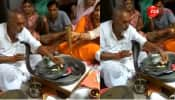Washington: One third of the world`s population is suffering from tuberculosis, and the disease could become incurable if governments fail to act, the World Health Organisation (WHO) has warned.
Dearth of funding for public health programmes, the sale of inaccurate blood tests and the misuse of drugs, especially in the private health sector, are hampering the fight against the disease and leading to drug resistance, says the organisation.
Extreme drug-resistant strains of TB have now been found in 70 countries, and doctors in India reported four patients this year, who did not respond to any drugs at all. Doctors in Iran and Italy have also found patients who are apparently resistant to all drugs.
“What we are seeing worldwide is the emergence of strains of the bacillus causing tuberculosis that are resistant to most of the drugs we have available,” the Independent quoted Mario Raviglione, director of the WHO`s Stop TB campaign, as saying.
The rate of TB deaths had declined drastically – by 40 per cent between 1990 and 2000 – after a worldwide health campaign, which was particularly successful in China. But the emergence of drug-resistant strains threatens to arrest progress and jeopardises the WHO`s goal of eradicating the disease as a public health problem by 2050.
Drug resistance is increasing as doctors are failing to prescribe the right number of drugs or because patients do not succeed in finishing the course of antibiotics.
In certain cases public clinics run out of stock, but increasingly, according to Dr Raviglione, private sector practitioners are to be blamed.
In India, which has the highest prevalence of TB in the world, 50-70 per cent of patients refer to private doctors when they begin coughing.
“They don`t want to queue in public clinics that are overwhelmed and congested. But the problem with private practitioners is you don`t know who you are meeting and sometimes these people are just incompetent,” he said.
Instead of prescribing the four-drug, six-month regime recommended by the WHO, private clinics prescribe either too many drugs, “which is a waste of money and increases toxicity”, or too few, which, Dr Raviglione said, increases drug resistance.
“Many doctors will not adhere to the correct regime of TB treatment. Often TB is not diagnosed: they just suspect it. They give two tuberculosis drugs, and say come back in four weeks; that is very common,” Professor Sarman Singh, a microbiologist at the All India Institute of Medical Sciences, said.
A study of 100 Mumbai private doctors discovered that they prescribed 80 different drug regimes, instead of following WHO standards.
But Professor Singh said that Indians who can manage to stay away from public hospitals will do so.
The sale of blood tests by private companies, an extremely lucrative business, is also a problem, according to the WHO.
“These serological blood tests can give you false positives and false negatives of up to 50 per cent, so you have a one in two chance that your test result will be wrong. These are done in the private sector, not public clinics, because they are not recommended by the WHO. So private physicians charge you 20 dollars for a test which is useless,” Dr Raviglione said.
The tests are made mostly by Western companies, but are sold to developing countries.
The WHO called for these tests to be withdrawn more than six months ago, and the Indian government recently suggested a ban, but this is only effective in the public health sector; the tests are still being used by private clinics.
ANI
















